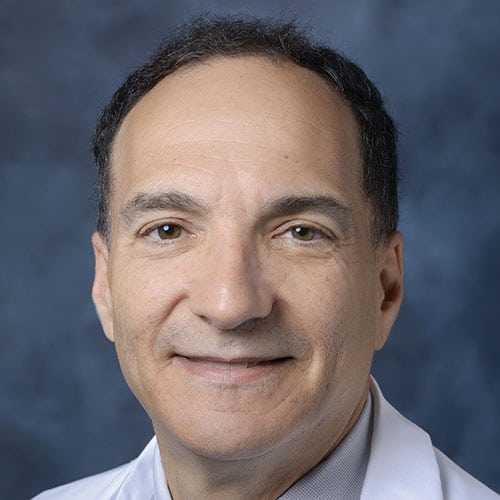 DawidMarkiewicz/Getty Images
DawidMarkiewicz/Getty Images Health care providers are only beginning to address the mental health pandemic that spread in tandem with COVID-19. In the past year, we’ve suffered the loss of gatherings with friends and families, workplace interactions and social events like birthday parties, bar/bat mitzvahs, weddings and funerals. Many developed anxiety or depression associated with this isolation: A recent JAMA study demonstrated that clinical depression, which affects about 10% of U.S. adults during normal times, may be three times more prevalent during the pandemic.
In considering the mental health pandemic’s severity, it is critical to distinguish “clinical depression” from the public’s use of the term. Clinical depression is more than just profound sadness (though it is often that too). Clinical depression produces functional impairments such as sleep disruption, impaired appetite, reduced concentration and can cause loss of interest in activities we usually enjoy. Along with anxiety, its fellow traveler, depression robs us of the capabilities we need to navigate the complex challenges of modern life. The threat of a deadly infection, loss of social interaction and financial stress have pushed many of us to the edge.
These psychological syndromes can masquerade as physical symptoms, like digestive upset, muscle achiness, headaches and more. Those affected often fail to recognize or even suspect a mind-body connection. After thirty years in clinical practice, I’m still amazed by the severity and diversity of the physical symptoms of psychosocial stress.
About one in seven American adults now take a medication for depression, primarily SSRIs (selective serotonin reuptake inhibitors, such as Prozac, Zoloft, and Lexapro). These drugs increase brain levels of serotonin, the brain’s critical “feel right” hormone. In good times, some say SSRIs are overused. But given the increased prevalence of psychological illness during the pandemic, SSRIs may be substantially underprescribed.
Therapists and other practitioners generally recognize that in this imperfect life, the edge offered by antidepressants makes a difference for many.
Patients cite many reasons to avoid SSRIs. They may suspect their doctor thinks the problem is “all in their head” or that physicians are pill pushers with delusions that a simple pill can solve a maze of life problems. That’s not what doctors think when prescribing SSRIs. We realize that addressing life’s great challenges can be profoundly difficult, even with the full panoply of one’s personal resources. Without sleep, proper diet and energy, all life’s problems seem transformed into insurmountable mountain peaks. The magic of SSRIs lies in their ability to restore the subjective feeling of life going well by bringing back appetite, energy, normal sleep habits and a positive outlook. The pills don’t solve life’s problems, but they restore the personal resources you need to address your problems. They also reinforce personal resiliency. I tell my patients that they allow life’s “slings and arrows” to bounce off, rather than scoring direct hits.
I had a recent office visit with “Judy,” whose story I modified to protect her privacy. She recently began experiencing intractable muscle achiness. She had seen an outstanding rheumatologist, but the treatment was falling short. The rheumatologist readily agreed to my suggestion to try an SSRI to address her underlying stress. Judy resisted. Although she was dealing with financial issues and the stress of her daughter’s recent illness, she denied the possibility of a mind-body connection. She didn’t see herself as “an anxious person.”
I’ve learned not to disagree with my patient’s personal self-assessments, so I didn’t remind her that 15 years ago, Judy had become so anxious that her day-to-day functioning became impaired. I simply suggested that even if only 20% of the problems were due to anxiety, reducing that component might make the symptoms more tolerable. To my surprise, after a week of consideration, she relented and started a trial of a small dose. Because SSRIs take three to four weeks to kick in, we’re waiting to see the results.
Of course, there are alternatives to SSRIs. I encourage patients to seek psychotherapy, exercise, cultivate the activities that they usually enjoy, spend time outdoors and meditate. Although these practices improve mental well-being, they may seem like additional obstacles for depressed patients, who may feel too depleted to take any initiative. Taking a pill is just easier. I remind patients that their common concern about drugs being “an escape” does not apply. They don’t take SSRIs to escape their true self but to reclaim their best self. With life’s normal rhythms restored, the SSRI can be weaned off. When life improves, no “extra credit” is awarded for getting there without the help of medication.
SSRIs aren’t panaceas. They don’t solve all our problems and never will. But they often help and do so with minimal risk of minor side effects. As cheap generics, they offer one of life’s great bargains. Psychotherapists nowadays don’t see SSRIs as competition to counseling as some once did. Experience revealed SSRIs as tools that improve patients’ functioning along with their ability to act effectively on therapist’s advice. Therapists and other practitioners generally recognize that in this imperfect life, the edge offered by SSRIs makes a difference for many. They don’t yet belong in our drinking water, but for many, SSRIs help restore precious quality of life in these profoundly challenging times.
Daniel Stone is Regional Medical Director of Cedars-Sinai Valley Network and a practicing internist and geriatrician with Cedars Sinai Medical Group. The views expressed in this column do not necessarily reflect those of Cedars-Sinai.























 More news and opinions than at a Shabbat dinner, right in your inbox.
More news and opinions than at a Shabbat dinner, right in your inbox.